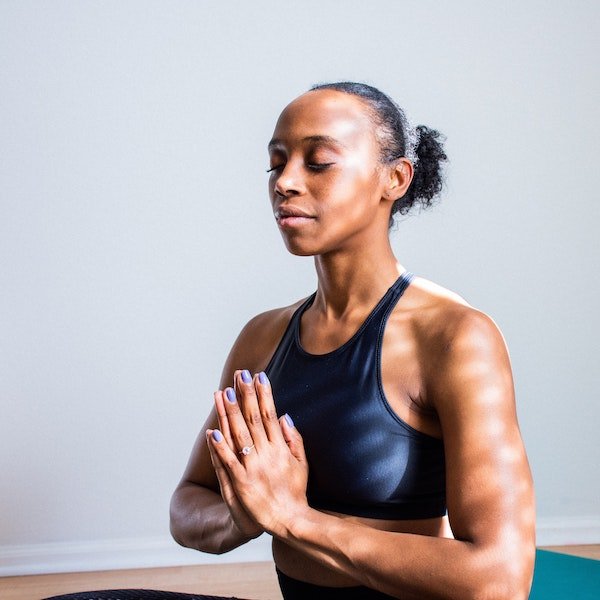When I first learned yoga, I thought this was just a luxurious activity for the bourgeois or an activity for the celebrities. This is not only because yoga sessions can be a bit pricey, but it is also because being quiet in a room and doing some uncomfortable positions are a bit appalling to me.
 However, as time progresses, there are now famous yoga sessions circulating around the internet, and yoga sessions are becoming more affordable for the majority of the population. Hence, it is only right for me to start educating myself.
However, as time progresses, there are now famous yoga sessions circulating around the internet, and yoga sessions are becoming more affordable for the majority of the population. Hence, it is only right for me to start educating myself.
Yoga is not just an activity for the physical body, but it is also for mental health. The benefits of yoga goes way back in Indian history, and as it evolves through time, extensive benefits are becoming more evident.
Just like any exercise, yoga has different types and each has a specific effect. However, yoga, as a whole, generally helps an individual’s well-being.
Moreover, the combination of physical postures, breathing techniques, and meditation has contributed to various aspects of an individual’s holistic being.
As much as it has a lot of effects on the physical well-being of an individual, it was initially designed for spiritual growth, for the expansion of the spiritual energy, and for the mental focus. Thus, there is certainly no doubt that Yoga has more effects on what’s within than what is on our exterior.
Mental health is as important as our physical health so it is only right for us to take good care of it in every stage of our lives. It includes our social, emotional, and psychological well-being thus affecting the way we think, feel, and act.
However, just like physical health, we also could get sick mentally. There are mental disorders that can disrupt, change, or influence the way we think, feel, and act. Two of the most common mental disorders are depression and anxiety and only one-third of those who have anxiety receive treatment.
There are different ways on how to treat and manage anxiety and depression. Some could really be pricey for most, there are still affordable ways on how to help manage these disorders.
Yoga, being a mental-stimulating activity, can actually help with anxiety and depression, and here’s why:
3 Reasons Why Does Yoga Help With Anxiety And Depression
1. Because yoga is a natural stress reliever
The philosophy behind yoga is also one aspect that makes yoga helpful to mental health, most especially those who are suffering from anxiety and depression. Yoga perceives the thought that the body is viewed as the exterior manifestation of what’s in our mind, and the mind can be heavily influenced by our body posture.
Meaning, the way we carry ourselves can influence and have an effect on the way we feel. With yoga’s different postures, the body can be strengthened and purified. Additionally, there could be a balance of the different internal systems (nervous, circulatory, etc).
Doing yoga and its postures can increase the gamma-aminobutyric acid (GABA), an amino acid that works as a neurotransmitter in our brain that produces a calming effect, which can help with the feelings of anxiety, depression, fear, and stress.
The postures help release the built-up tension and emotional stress within our body, which is believed to be burrowed into the muscles of the body. In short, a relaxed body helps the breathing, thus creating a quiet mind and a balanced disposition of the body and the mind.
2. Because it promotes mindfulness
Yoga promotes an inward concentration through meditation and this allows us to calibrate our senses, letting us step back from our peaking thoughts and feelings. Yoga helps us on a therapeutic level because it lets us perceive each moment as a unique event that develops a high level of calmness and clarity.
Moreover, this also contributes to our insights in facing and embracing different life events and experiences.
There are different meditation techniques used in yoga: concentrative meditation and mindfulness meditation. The former uses an object or sensation to focus the mind, while the latter uses our thoughts and feelings and observing them with a detached and non-judgmental perspective.
Mindfulness meditation helps us detach from these mental events, preventing us from getting caught up in them.
With enough practice from the mindfulness meditation, it trains us to cultivate self-acceptance and helps us to become more skilled at stepping back from our thoughts and our feelings while observing them without getting attached. This gives us more control over our emotions rather than vice versa—letting us not be defined by our emotions.
3. Because it promotes emotional stability
The philosophy behind yoga is also primarily connected to the spiritual aspect. The deep aspect of yoga is when we believe in a higher sense of self, divine energy, or a soul, we will maximize our yoga practices. The sense of a higher self will bring calmness and this allows us to be more conscious of every part and inch of ourselves.
Depression and anxiety have other stressors other than stress. This could also be due to loneliness and the feeling of not being able to break away from the stagnant routinary life. When we connect to our higher selves through yoga, we can have our mindsets focus on a much deeper sense other than just the skin we’re in.
Yoga can help us think of life in a different way, hence, letting us realize that there is more to life than the reality that we’re living in—building depts and purpose into our life.
When we start understanding our own divine self, we may feel our loneliness slowly stripping away because we will learn that we are never alone because you feel a certain connection to a higher being or to the people around us.
This results in reduced fear and loneliness. Moreover, creating a connection to anyone can have more inclination to live life to the fullest, to enjoy all the experiences, and to infuse our mind with good thoughts.
Other Research on Yoga and Mental Health
A study made by Richard Davidson, Ph.D., at the University of Wisconsin indicated that greater levels of happiness and better immune function can be the benefits of yoga because it promotes heightened activity in meditators. A greater level of happiness can have direct effects on mental health disorders like anxiety and depression.
A study in the Indian Journal of Physiology and Pharmacology last 2001 have found that there is a significant difference among the participants who practiced yoga constantly for 10 months. They were reported to be less anxious and depressed, both during and post-yoga sessions.
Consistent yoga practice improves the circulation in the endocrine glands, a gland that is responsible for the release of hormones into the bloodstream, which results in an enhancement of the functions of hormones that have a significant role in the physiology of depression.
This has a good effect in the reduction of depression and the overall mood of the person.
Recommendations
Yoga is proven to have a lot of advantages and benefits in our mental health, even to those who are suffering from real mental health issues. Though it is still not proven whether it can treat anxiety and depression, it is still helpful to manage and ease down the factors, like stress, that can cause anxiety and depression.
However, despite how good the benefits are, yoga is still not a substitute for psychotherapy or meditation for those who have moderate to anxiety and depression. Rather, yoga is just one of the many factors that could contribute to the betterment of our mental well-being.
For beginners and for those with serious injuries or other health conditions, it is still better to go to a professional and certified yoga instructor. It is known that yoga has different complicated positions that require assistance and if done incorrectly, it may be counterproductive because it can cause serious injuries and stress.
 Editor’s Corner
Editor’s Corner
I suffered with anxiety a lot throughout my early twenties, and have talked about it on this blog before. What I found works the best for me is to try and manage these feelings as best as possible. With exercise and healthy eating you can definitely start to feel better about yourself.
Everyone is different though, and the main goal of this post was to potentially give people suffering from disorders another tool that they can keep in their arsenal to combat their mental health issues.
Conclusion
Yoga is definitely beyond the imagery of being luxurious because it is now accessible to the majority of the population. Moreover, it has great contributions to not just our physical health but also to our mental well-being.
Mental health issues are complex and though treatable, it can still be difficult to deal with. With yoga, it helps us deal with our issues mentally and helps us understand what is inside our minds and how it works. We do this by learning to be more present.
With the different techniques, like breathing, posture, and meditation, there are different effects and benefits these could contribute to our bodies. Not only that, but we also see a change in perspective on our body, thoughts, and our whole sense of our self, events, and circumstances that we face.
Although yoga is not an alternative for the treatments of our mental health disorders, yoga is still beneficial to enhance our state of being, to increase our calmness, and to alleviate stress and sadness.
The best part of yoga: you don’t need more than a yoga mat to get started.
Sources:
https://www.healthline.com/health/gamma-aminobutyric-acid
https://www.health.harvard.edu/mind-and-mood/yoga-for-anxiety-and-depression
https://adaa.org/understanding-anxiety
https://www.mentalhealth.gov/basics/what-is-mental-health

Marko Rakic is a trail runner and fitness enthusiast from Sydney, Australia. He is the lead writer for The Ultimate Primate and believes the best way to live a happy life is through constantly challenging yourself.
